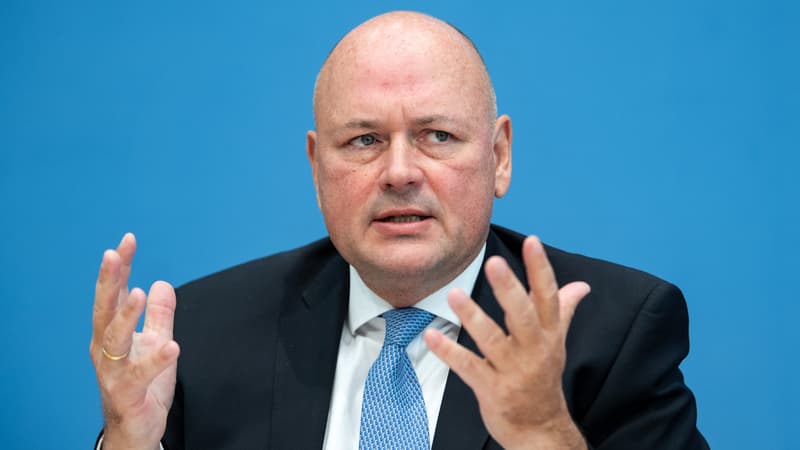The head of Germany’s cybersecurity agency was sacked on Tuesday after media reports of his lack of distance from Russia amid concerns in Berlin about possible acts of sabotage by Moscow.
“Interior Minister (Nancy) Faeser has today decided to remove from office with immediate effect the chairman of the German Cyber Security Agency (BSI), Arne Schönbohm,” a ministry spokesperson said in an emailed statement.
Links with a cybersecurity consulting association.
For more than a week, Arne Schönbohm had been in the dock following press reports about his proximity to a cybersecurity consulting association suspected of having contacts with Russian intelligence services.
These accusations “have permanently damaged the necessary public trust in the neutrality and impartiality” of the chairman of Germany’s top cybersecurity authority, the ministry spokesman said.
“This is even more true in the current crisis situation regarding Russian hybrid warfare,” he added.
The ministry clarified that a review of the accusations is underway and that the presumption of innocence “applies naturally.”
Arne Schönbohm, 53, in office since February 2016, had been chosen by the government of former Chancellor Angela Merkel.
Revelations made by German public television
The appointment of this former director of the Franco-German aeronautical group EADS was then the subject of criticism, in particular by the Greens today in government.
“One may wonder if the security appointments of previous CDU-CSU governments (Conservatives, editor’s note) were the best possible,” cybersecurity expert Markus Beckedahl recently commented in an interview with the public channel SWR.
For more than a week, Arne Schönbohm has been implicated for his alleged contacts with an association called “Cyber-Sicherheitsrat Deutschland” (German Cyber Security Council or CSRD).
This association, co-founded in 2012 by Arne Schönbohm and based in Berlin, advises companies, government agencies and politicians on cybersecurity issues.
These links were the subject of investigations presented at the beginning of October in a broadcast by the public television channel ZDF.
One of the CSRD member companies is the most particular target. This company, Protelion, is a subsidiary of the Russian cybersecurity company OAO Infotecs which, according to information from the “Policy Network Analytics” research network, was founded by a former collaborator of the Russian KGB intelligence services.
The Russians behind the hacking of the Bundestag’s computers?
Arne Schönbohm assured the magazine on Tuesday Der Spiegel that he did not know “what the department verified and what the specific complaints were” against him. He alleges that, for this reason, he himself requested to be subject to a disciplinary process.
In a previous article, the spiegel had judged “at least doubtful that Protelion really plays a significant role in the German cybersecurity architecture”, wondering if the criticism directed at the person in charge was not “a good opportunity for the government” to change the direction of the BSI.
This dismissal comes at a time when Germany is on alert for possible acts of sabotage from Moscow. Following leaks in the Nord Stream 1 and 2 pipelines built to transport Russian gas to Europe, the country suffered a large-scale railway sabotage on October 8, for which some have referred to the Russian route in the context of the war in Ukraine. .
Russia has been repeatedly accused of cyber espionage against Germany, even before the start of its invasion of Ukraine on February 24. In particular, it is blamed for a large-scale hacking in 2015 that targeted the computers of the Bundestag, the lower house of the German parliament, and the services of then Chancellor Angela Merkel.
A necessary evil”
Olaf Scholz’s government has committed to making strengthening computer security a priority.
“We have paid very little attention to IT security for the last 20 or 30 years,” said expert Markus Beckedahl.
He considered that this issue in Germany “has always been seen in political and economic decision-making bodies as a necessary evil, but not necessarily as a basic condition for the creation of sustainable infrastructure for the future.”
Source: BFM TV


